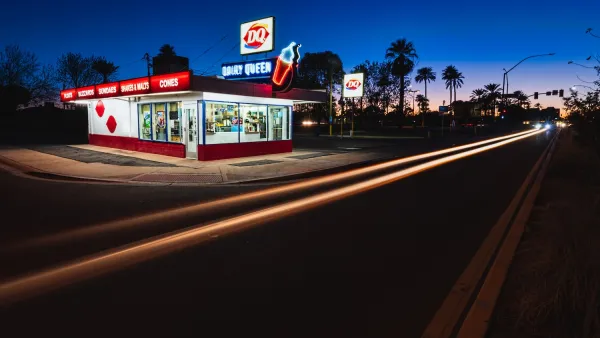The city’s restaurants are bouncing back faster than other industries, providing a key source of jobs.

A post by John Brannen in the Kinder Institute for Urban Research’s Urban Edge points to Houston’s rapidly rebounding restaurant scene as a sign of the city’s economic resurgence. Despite the city’s reputation as an oil and gas hub, Brannen explains, jobs in that sector are recovering more slowly and face more constraints.
Meanwhile, “Houstonians dining out and the expansion of the leisure and hospitality workforce is a positive sign for the local recovery. Houston’s coveted bar and restaurant scene is a point of cultural pride, and it serves as a common third place for many residents,” in addition to being a key employment sector. “With the addition of 149,065 jobs from January-October, overall employment in Houston has grown 2.9% compared to last year, and every industry has surpassed pre-pandemic levels of employment, according to the Dallas Fed.”
After struggling during the pandemic, the industry was kept afloat in part by $28.6 billion from the federal Restaurant Revitalization Fund Program. “In late September and early October, seated diners at Houston restaurants were 19.5% higher than the same period before the pandemic in 2019, according to the OpenTable restaurant and reservation platform.” Nationwide, the average did not change in the same time period, Brannen notes.
FULL STORY: Houston’s restaurants, not oil and gas, offer a strong signal of the city’s economic recovery

Planetizen Federal Action Tracker
A weekly monitor of how Trump’s orders and actions are impacting planners and planning in America.

Map: Where Senate Republicans Want to Sell Your Public Lands
For public land advocates, the Senate Republicans’ proposal to sell millions of acres of public land in the West is “the biggest fight of their careers.”

Restaurant Patios Were a Pandemic Win — Why Were They so Hard to Keep?
Social distancing requirements and changes in travel patterns prompted cities to pilot new uses for street and sidewalk space. Then it got complicated.

DC Area County Eliminates Bus Fares
Montgomery County joins a growing trend of making transit free.

Platform Pilsner: Vancouver Transit Agency Releases... a Beer?
TransLink will receive a portion of every sale of the four-pack.

Toronto Weighs Cheaper Transit, Parking Hikes for Major Events
Special event rates would take effect during large festivals, sports games and concerts to ‘discourage driving, manage congestion and free up space for transit.”
Urban Design for Planners 1: Software Tools
This six-course series explores essential urban design concepts using open source software and equips planners with the tools they need to participate fully in the urban design process.
Planning for Universal Design
Learn the tools for implementing Universal Design in planning regulations.
Heyer Gruel & Associates PA
JM Goldson LLC
Custer County Colorado
City of Camden Redevelopment Agency
City of Astoria
Transportation Research & Education Center (TREC) at Portland State University
Camden Redevelopment Agency
City of Claremont
Municipality of Princeton (NJ)




























